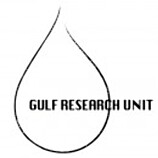
Archive: Gulf Research Blog
Blog articles from 2009 to 2012. The Gulf Research Unit is research programme based at the University of Oslo.
Ssshh..
Denne artikkelen er over ti år gammel og kan inneholde utdatert informasjon.
By: Ingrid Krüger
The resource wealth of the Gulf Region makes it possible for the governments in the region to ensure a widespread social spending. Education has been one of the top spending priorities of the governments in the oil-rich region. High spending on education has paid off both in terms of high enrollment rates and in terms of high literacy rates.
Yet, the figures drawn from the educational data hide one important drawback – academic censorship. Certain issues are shushed in the classroom, certain topics are not taught, certain questions are not posed and certain books are not made available. This censorship disrupts the forming of individual preferences, and so censorship disrupts a process that is fundamental to economic development.
Amartya Sen, who won the Nobel Price in Economic Science in 1998, formulated the issue at hand as follows:
Political and civil rights, especially those related to the guaranteeing of open discussion, debate, criticism, and dissent, are central to the processes of generating informed and reflected choices. These processes are crucial to the formation of values and priorities, and we cannot, in general, take preferences as given independently of public discussion, that is, irrespective of whether open debates and interchanges are permitted or not. (1)
The most recent Freedom House Reports show that political and civil rights related to open discussion, debate, criticism, and dissent are severely violated in the Gulf Region. In Iran, the Ministry of Culture must approve publication of all books and inspects foreign books prior to domestic distribution. In Saudi Arabia, informers monitor classrooms for compliance with curriculum rules. (2) Numerous other examples of restrictions on academic freedoms are listed in the Freedom House Reports.
As argued by Sen, political and civil rights give people the opportunity to demand appropriate public action. If scholars are threatened when expressing political views, the opportunity to discuss is constrained. If teachers and professors restrict themselves by avoiding politically sensitive issues and if textbooks are censored in schools, important debates are shushed. If scholars who would otherwise criticize the government are forced to censor themselves, a crucial feed-back to politicians is kept silent. Academic censorship is not only destructive to the process of economic development, it is also destructive to the goal of economic development, for as Sen argues `if freedom is what development advances, then there is a major argument for concentrating on the overarching objective.’ (3)
––––––
1. Sen, Amartya (2000, p.153). Development as Freedom. Anchor Books.
2. Freedom House Country Reports (2010)
3. Sen, op.cit., p.3






